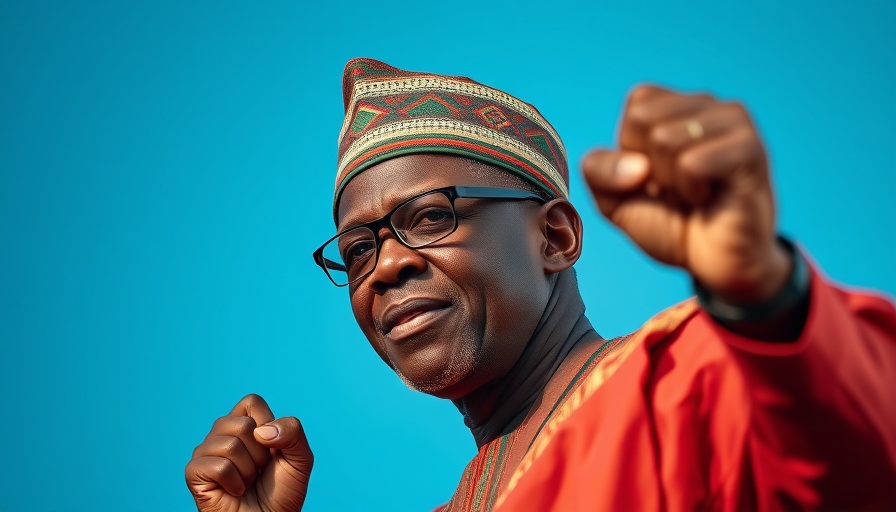
Rethinking Governance: The People Behind the System
In a compelling exploration of the intersection of systems and human agency, Ann-kio Briggs strongly posits that our challenges in governance extend beyond structural shortcomings; they are deeply rooted in the very fabric of societal interactions and behaviors. Her insights serve as a critical reminder that effective governance in Africa hinges not solely on institutional reforms but on fostering a culture of accountability.
In 'It’s Not Just the System – It’s the People!', Ann-kio Briggs dives into the essential discussion on governance challenges, prompting deeper analysis on people's roles in accountability.
Historical Context: A Continual Struggle for Accountability
For decades, Africa has grappled with governance issues ranging from corruption to inefficient bureaucracies. Understanding this context is essential for discerning the contemporary challenges that citizens face. Ann-kio Briggs highlights how a historical lack of accountability from public officials has perpetuated the cycles of distrust and disillusionment among the populace. This narrative underscores the need for systemic change in how citizens and leaders engage with one another.
The Role of Citizens in Shaping Governance
Briggs’ assertion that “it’s the people” encapsulates a vital truth: citizens are not mere spectators in the grand narrative of governance but active participants with the power to drive change. This notion resonates deeply as Africa continues to witness a surge in grassroots movements aimed at demanding accountability and transparency. As public interest in political processes grows, so too does the potential for positive change.
Counterarguments: Addressing Systematic Challenges
While Briggs urges a focus on the individual, the complexity of systemic issues cannot be overlooked. Critics may argue that, without tangible reforms targeting institutional frameworks, citizen action alone is insufficient to instigate profound change. Indeed, this belief emphasizes a dual approach: empowering citizens while simultaneously advocating for structural reforms to ensure meaningful representation and accountability.
Future Insights: The Increasing Power of Youth Engagement
As Africa steps into a new political era characterized by engaged and informed youth, the potential for transformational leadership is immense. Young people across the continent are pioneering innovative ways to hold both leaders and themselves accountable. This synergy of expectation and engagement creates an opportunity for reimagining how governance can function effectively in the service of citizens.
Actionable Insights: Empowering Change Through Community Engagement
Briggs emphasizes that fostering a culture of accountability can start at the grassroots level. Communities can prioritize civic education, encourage active participation in local governance, and initiate campaigns that demand transparency. Such initiatives are vital not only to hold elected officials accountable but also to instill a sense of collective responsibility among citizens.
In the landscape depicted by “It’s Not Just the System – It’s the People!”, Ann-kio Briggs dives deep into the intricacies of governance within the African context, urging us to recognize individual responsibility in shaping our futures. The thoughts and reflections shared prompt critical examination of not only systemic flaws but the role each citizen plays in cultivating a better political environment.
Understanding these dynamics is crucial for any African citizen invested in the advancement of their community. The exploration of these themes highlights that each action taken towards fostering accountability contributes significantly toward a brighter, more equitable future for the continent.
 Add Row
Add Row  Add
Add 


 Add Row
Add Row  Add
Add 

Write A Comment